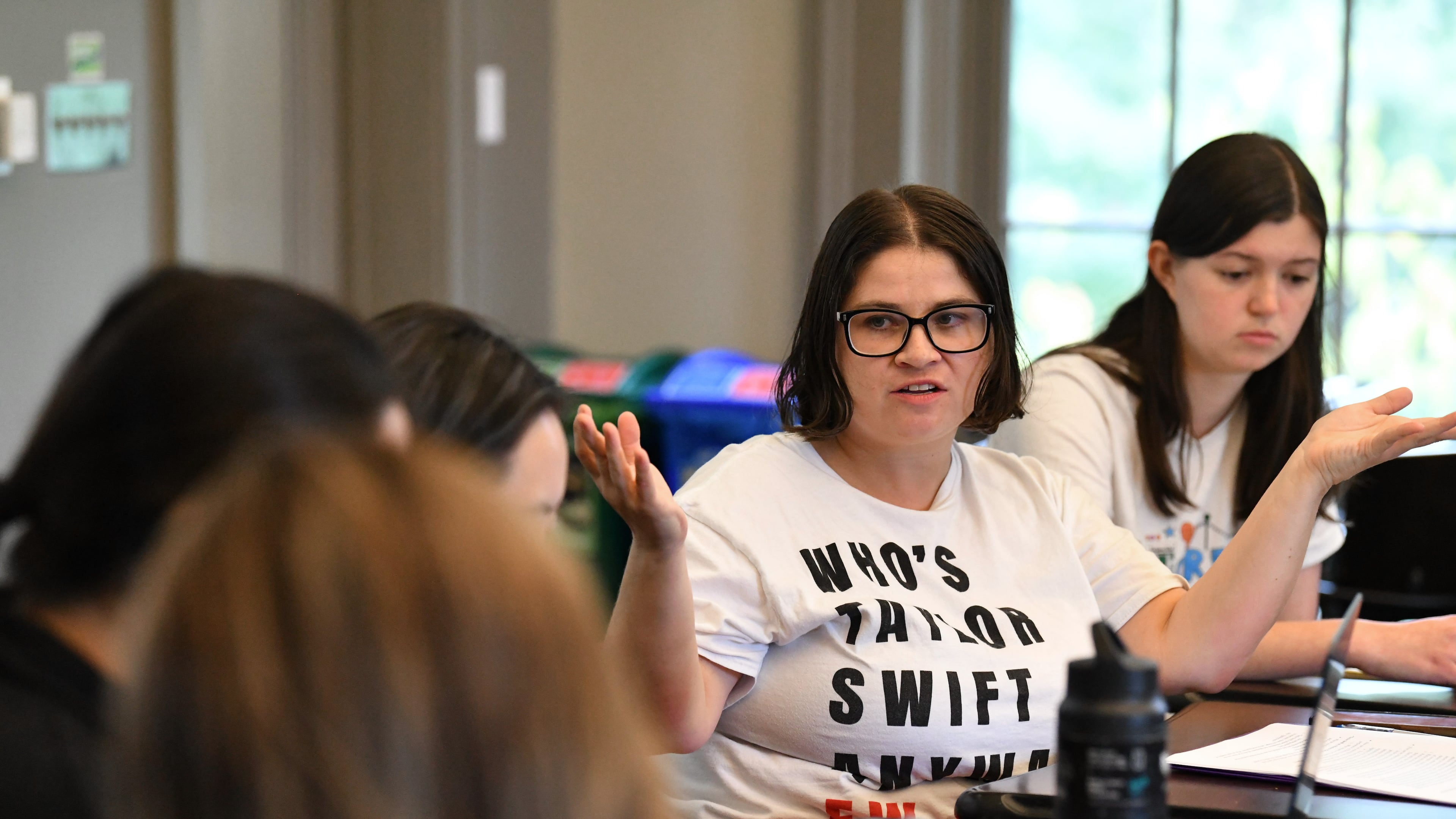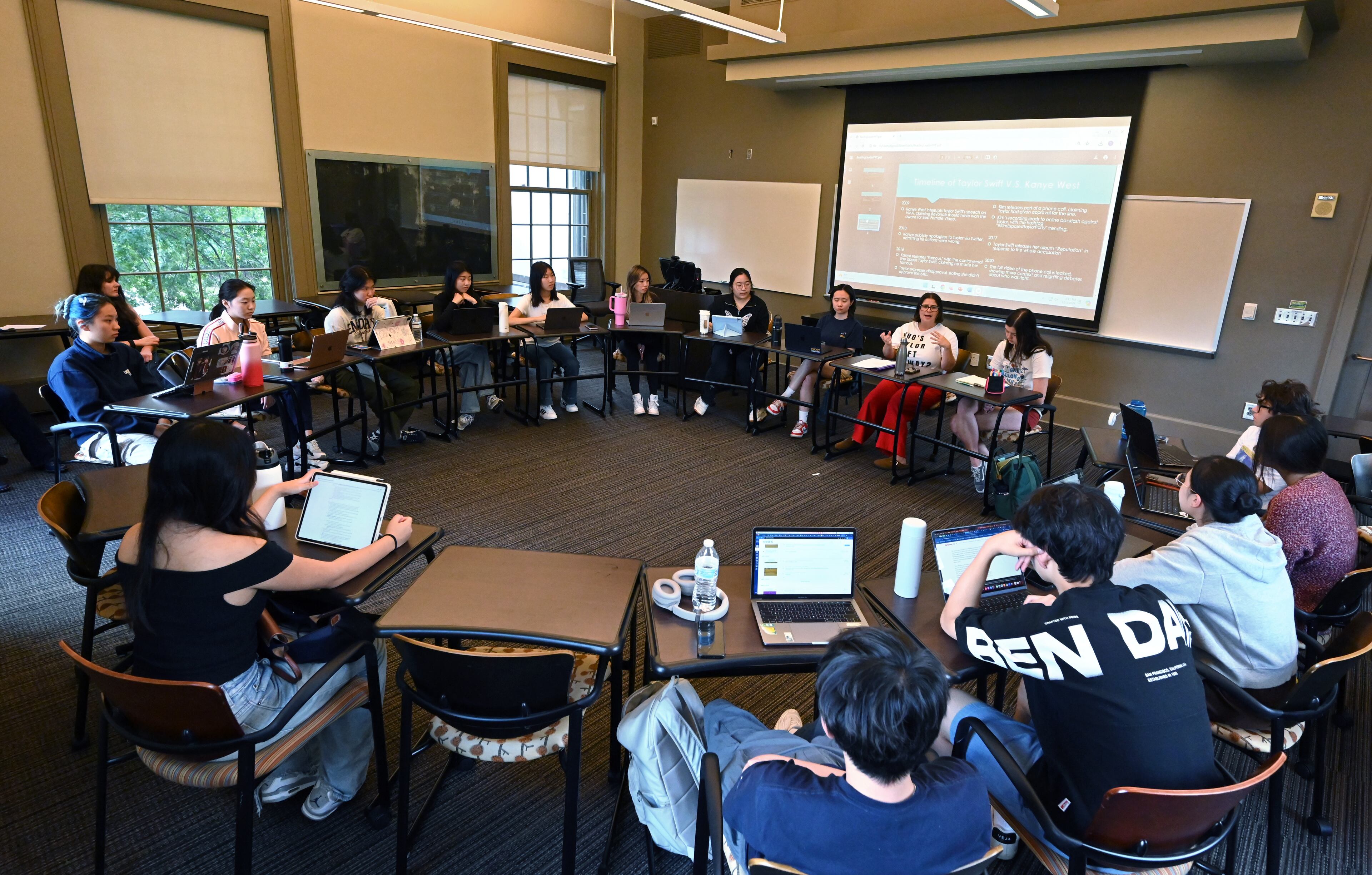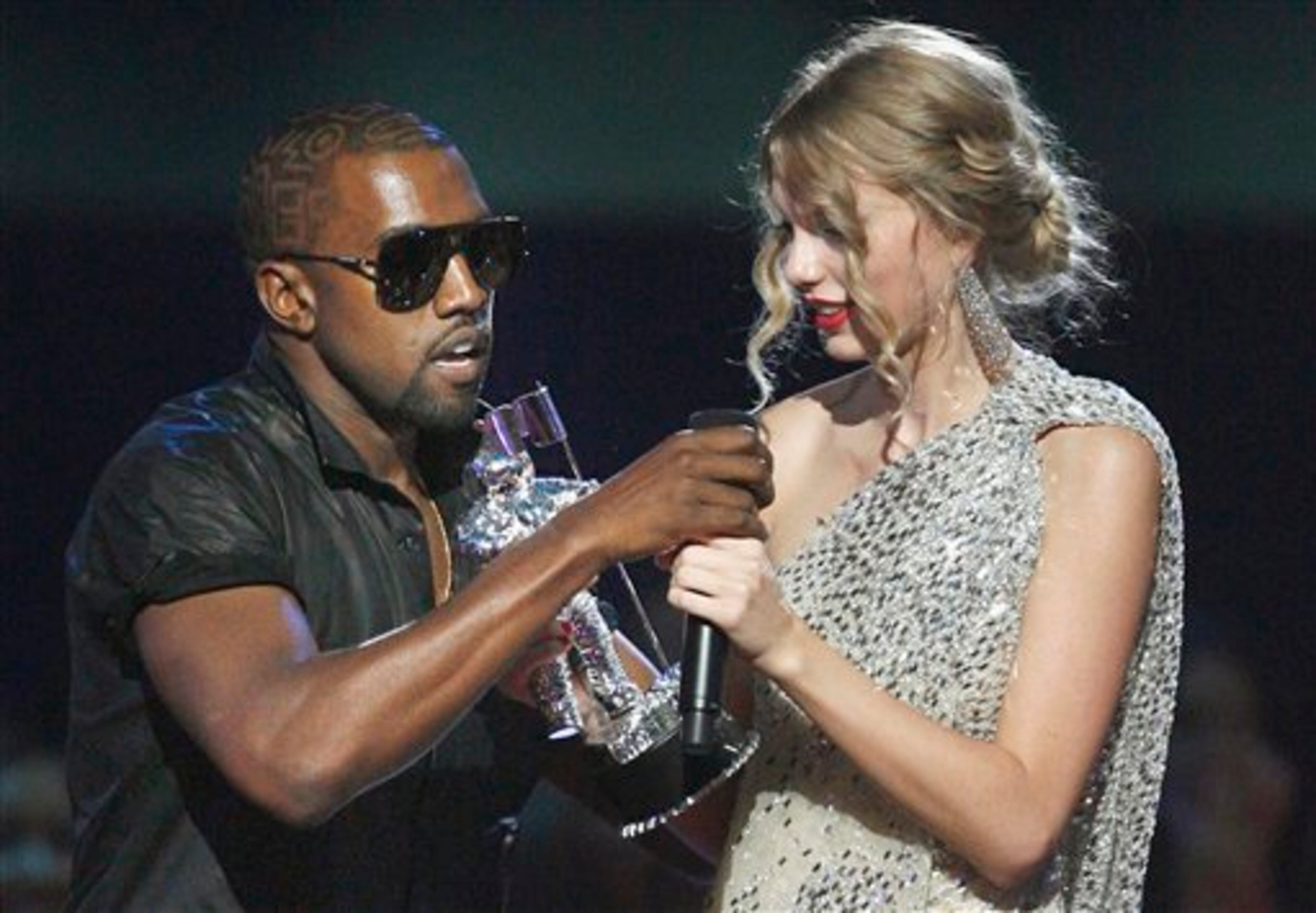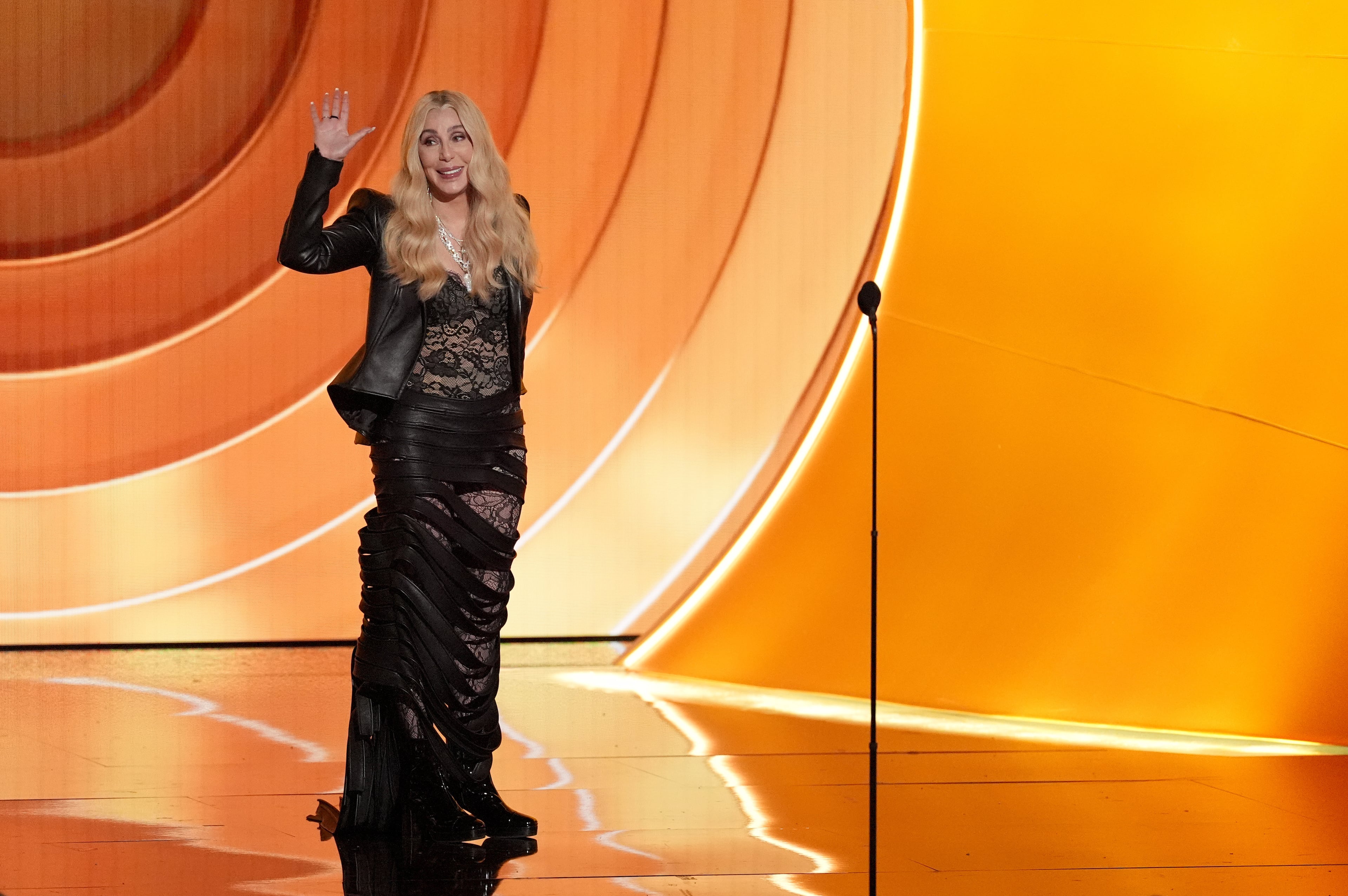A class on Taylor Swift? Emory students are ‘Ready for It’

It would be easy to dismiss a class centered on one of the world’s most famous pop stars as “fluff” or an “easy ‘A.’” But sociology professor Devon Goss thinks the word you might be looking for is “relevant.”
“I saw conversations online about, ‘Is Taylor Swift a feminist?’” she said. “Or, ‘What kind of feminism does she represent?’ Or, “Is she an LGBTQ ally?’ Or, ‘Is she pinkwashing to sell more albums?’ And I just felt like that would be such a fun seminar — not to just center it around Taylor Swift, but really use it to introduce a lot of these different sociological concepts that we teach all the time.”
So Goss developed a new course for students at Emory’s Oxford campus in Covington called “Sociology: Taylor’s Version.” It’s part of a group of introductory courses freshmen are required to take. Goss said the course takes on significant social topics throughout the timeline of Swift’s career.
“We’re talking about things like race and class and hierarchy, and what makes somebody a fan or authentic,” she said. “So it’s kind of a lens to get at these deeper issues that really help us with critical thinking.”
Students will produce four assignments that are like mini-research projects, Goss said.
On a recent Thursday afternoon, the class of 16 students sat with their desks in a circle. Some students presented an analysis of news articles they’ve read about Swift being upstaged at the 2009 MTV Video Music Awards by rap star Kanye West. Most of these students were toddlers at the time, so Goss showed them a clip of the moment in a previous class.

The 2009 incident unfolded live. Swift came onstage to accept the award for Best Female Video for her song “You Belong With Me.” She was then 19 and recently had crossed over to pop from country music. She seemed genuinely surprised by the win.
West — who wasn’t presenting or announcing anything — then stormed the stage and took the microphone from Swift. “Taylor, I’m really happy for you,” he said. “I’m going to let you finish, but Beyoncé had one of the best videos of all time, one of the best videos of all time.”
Swift seemed crestfallen as her moment in the sun was stolen.
During the class discussion, one student noted that public opinion seemed to side with Swift at the time.
“People think that she represents a kind of innocence and purity, and she is the all-American archetype,” she said.

The conversation moved to other aspects of the confrontation, with another student noting that West was taking a cultural stand. “It’s like recognizing how Black artists and Black music aren’t getting enough recognition,” she said.
Goss said that brief moment on stage between the stars represented more complicated cultural dynamics.
“It’s emblematic of larger symbols in society about who gets the power? Who gets recognition? Who interrupts whom?” Goss said. “People are viewing this through their ideas — that are already formed in some ways — about race and gender and class.”
Emory isn’t the first college or university to center a class on Swift. Stanford University offers a class that analyzes Swift’s lyrics. New York University’s Clive Davis Institute of Recorded Music has an undergraduate class on Swift that “proposes to deconstruct both the appeal and aversions” to Swift, a course description says. Harvard University has a class centering on Swift’s music catalog and her cultural influence.
Goss says she’s a Swift fan, but “I wouldn’t say I’m a Swiftie.”
Goss said she hopes students can apply what they learn in the course about culture and society to other issues in their lives, such as politics or interpersonal relationships.
“We talk a lot about a controversial things or things that people are deeply connected to, like people’s identities,” she said. “It’s a fun way to do it, but we’re still talking about things that I hope students take with them beyond just Taylor Swift.”
For Yvette Park, a freshman pre-med major, “Sociology: Taylor’s Version” is her most enjoyable class. Her courseload this semester includes biology and chemistry.
“Since I was a kid, I’ve always really liked listening to Taylor Swift with my friends, and I’ve also really been interested in sociology,” she said. “I learned a lot and it’s really fun. It’s a really good place for me to escape all the really hard stuff.”



